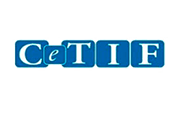Market Data: what they are and why it is important to know how to manage them
By Alessandra Lanterna

The number of products and services related to the Market Data used in Financial Services is enormous. Consider that, globally, there are more than 3000 products / services, provided by more than 500 suppliers, that cover the Market Data demand of the Financial Operators: from real time instrument prices to reference data.
Market Data is the broad term used in reference to the financial information necessary for carrying out research, analysing, trading and accounting for financial instruments of all asset classes on world markets. In terms of variety, it ranges from standard, individual and “simple” services and contents (such as professional workstations), to complex data flows and sophisticated data processing platforms serving multiple Business areas. Market Data Management therefore refers to the administration of products and services relating to Market Data and to the management of contractual relationships with the Data Providers (i.e. proprietary data Sources, like the Markets, and the Data Vendors, which gather and distribute data from the Sources to the Users).
A complex market scenario
Those who deal with Market Data Management are faced with a complex market scenario that, in addition to the number and variety of products and services, is characterized by:
- Huge demand expansion – Many Business areas need Market Data. Above all, requests related to regulatory requirements, big data and new media are growing;
- Low competition – On the individual products the offer is characterized by a few Suppliers with a low level of competition; in addition, several mergers and acquisitions are in progress among the various market players;
- Continuously rising pricing – In sharp contrast with other products and services (software, for example), every year Market Data Vendors declare price increases, on average between 2% and 10%;
- Hyper-binding contracts and policies – Contracts determine rights and duties of the subscribers in an increasingly detailed and binding way. Failure to align with the new rules imposed by Market Data Providers involves economic and operational risks;
- Right to Audit – Another peculiarity of contracts related to this type of products and services is the clause that guarantees to those who sell the data the right to verify how data are used by the subscriber. As a result of these inspections, corrective actions might emerge, often combined with harsh penalties;
- Absence of protection for Financial Operators – The financial community is lagging behind in creating policies to hinder the aforementioned commercial practices imposed by Market Data Providers.
The main challenges for Market Data Managers
In addition to the complexities typical of this context, Market Data Managers are faced with a series of challenges related to the management of Market Data within a Financial Operator:
- Great fragmentation of procurement procedures and contract management in numerous organizational structures, consequently revealing inefficiencies and operational constraints;
- Failure to supervise all the services acquired and their evolution over time (for example, service amendment or cancellation);
- Poor culture of contractual provisions and related policies (and their evolution over time), resulting in a negative gap between licensed use and real use;
- Poor knowledge of products and services. Lack of vision and general coordination, both in the selection and procurement logics;
- Complete absence of internal rules for the allocation of these extremely expensive products and services.
It’s all about synergy: 5 benefits of centralized market data management
In order to face on one side a market that is so aggressive towards the Customer and on the other side a rapidly growing demand, which requires and needs specialized support, a possible strategy for a Financial Operator is to build a Competence Center for the management of Market Data, in which to develop the appropriate skill-set of knowledge and expertise.
Main benefits would be:
1. Ability to provide central administrative support (purchasing process, orders and contracts management), which can leverage the central privileged position to operate “wide enterprise” strategies, in the selection of services and in negotiations with Suppliers;
2. Activation of a unit dedicated to data consumption monitoring, which can proactively intervene in cost control by suggesting possible actions for rationalization and optimization of services and products acquired by the various Business units;
3.Development of a solid operational knowledge of contracts and policies, aimed at removing and preventing compliance gaps and inefficiencies;
4. Consolidation of technical product knowledge, to support IT and Business project initiatives. The Competence Center to become the promoter of a culture of conscious use of Market Data;
5. Definition of centralized rules and criteria for the allocation of products and services to the various Business units (such as spending capacity or benefit/cost ratio) in order to concentrate available resources (both economic, like the budget, and physical, such as the team managing procurement and contracts) for the acquisition of strategic products and services.
Share this article:

Towards AIFMD II: public consultation and regulatory changes

Navigating the Digital Age: The Role of Accessibility

DORA Regulatory Implementation Technical Standards










